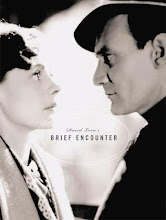Rembrandt fecit 1699 is a dutch film made by Jos Stelling. It covers a lot of Rembrandt’s life; if narrative were to be divided with his relationships with three women: with his wife Saskia van Uylenberg, nurse Geertje Dircx and maid Hendrickje Stoffels. This is not a great movie, and unless you are interested in the visual arts you will find the movie painfully boring
Firstly, other than roughly following his life, the movie neither offers a thorough exploration of his art or of his personal life. I am inclined to think that if Rembrandt were to send Geertje Dircx to the bridewell asylum and have Hendrickje Stoffels be punished for the act of fornification and paint the subtle Nightwatch, then he probably wasn’t the bleak, caught-in-my-very-own-private-world artist. Such artists are often products and creations of the twenty first century.
To have painted his very famous domestic scenes, he probably had a way with people and to observe requires being at ease with people. In the film sadly, the bleakness of last years foreshadows even the first years. Sad and drooping, he rarely talks through out the movie. The personal ambition is underscored but his luxurious lifestyle and commanding very high prices for his paintings figure, implying that this movie though a biopic, is plot-driven-which is a very bad thing to happen when you are talking about a person. The film tries a little of that I think, in the beginning when we see Rembrandt making faces in the mirror, dressing up and all, to create self portraits. He also plays with his young son, Titus and Geertje’s attachment to the child is also shown tenderly. But these random scenes are too random to change the overall foreboding tone of the film. Considering, how much that renders the film a drag, it is a very unforgivable flaw indeed.
Secondly, the film portrays the life of the sequestered private individual Rembrandt; no mention is made of the other painters which would have been all right, if he weren’t working right through the Dutch Golden age with other big shots like Vermeer and Ruisdael. Or even Frans Hals, if his achievements in portraiture put him any closer to Rembrandt. The movie is also quite amiss when it comes to Rembrandt’s own works. Other than providing a nebulous outline of his family life, the director does not progressively look at his works, or diachronically, when he was painting very Christian themes such as Stoning of Stephen or the later, myth influenced themes of Rape of Europa or Rape of Ganymede. Instead, Rembrandt is shown to be fleetingly assessing a Bible later in the movie but the fact is because of his catholic upbringing and the catholic master, the influences were more deep seated than drawn later because of the economic difficulties in later years.
Thirdly, it is a bad movie in so many ways. Apparently it is one in the series to come, on very famous Dutch men. May be that explains the egoistic wrapping of the movie around the man, and his headlong diving in to the misery of his last years when with the brush of fiction, so much could have been developed-like beautiful Titus or what becomes of Cornelia. But, hey, as an introduction to Rembrandt or simply to watch a painter paint, which is what I wanted; a good watch.
Friday, May 28
Subscribe to:
Post Comments (Atom)




No comments:
Post a Comment